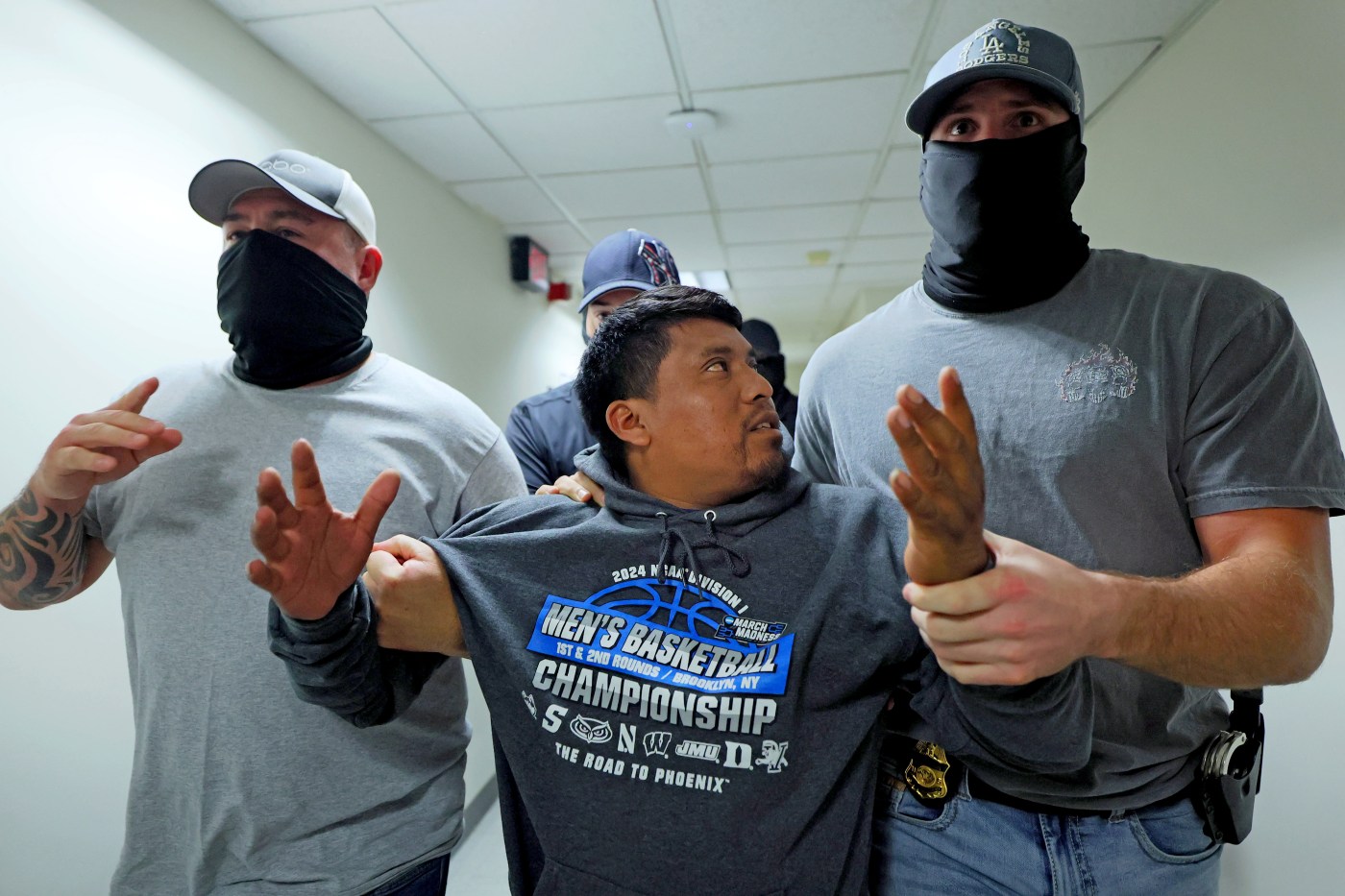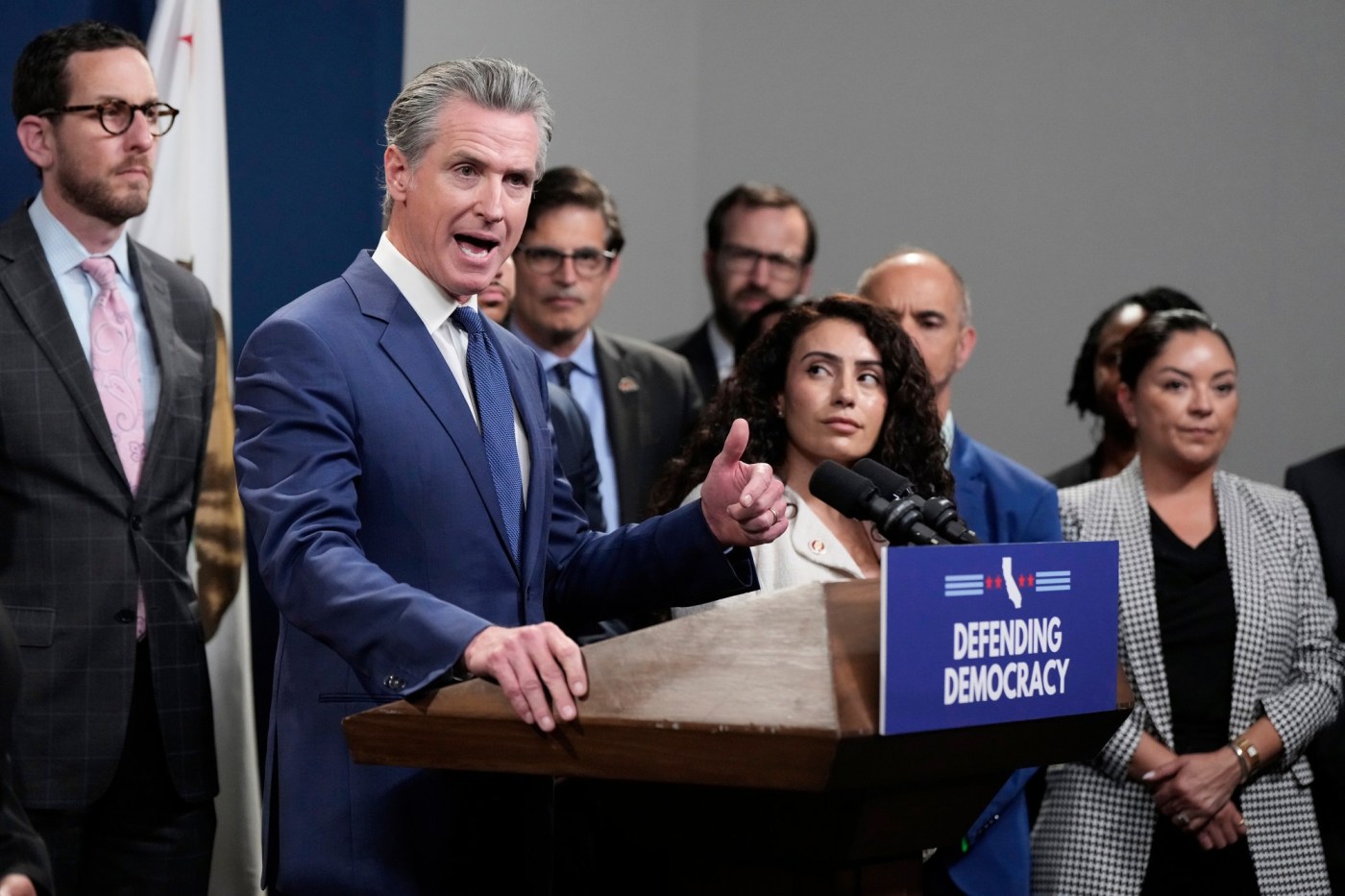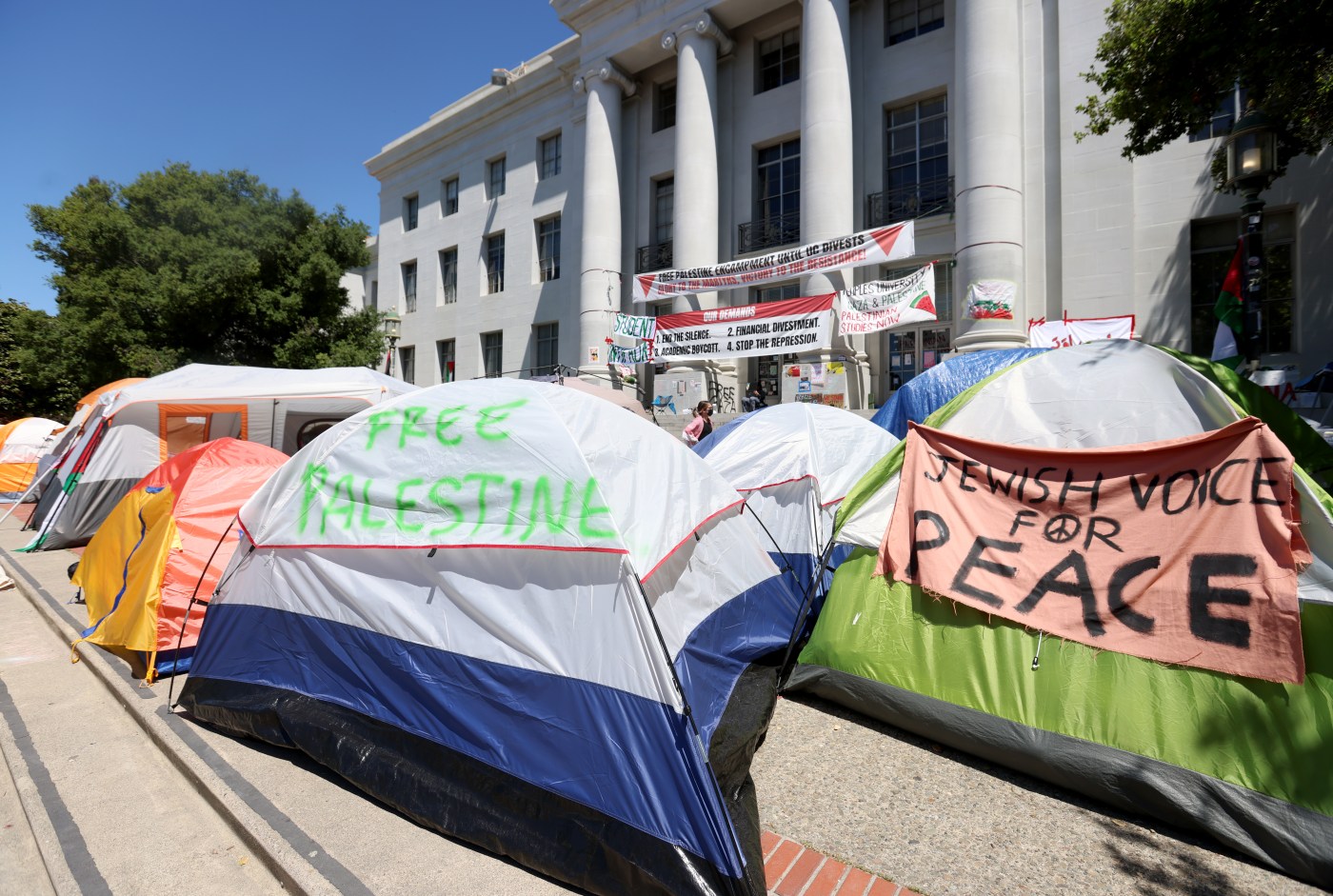Despite significant pushback from major law enforcement agencies and questions raised about its constitutionality, a California bill that would prohibit local and federal officers from concealing their faces under most circumstances is headed to Gov. Gavin Newsom’s desk.
Related Articles
Lawsuit says US held West African migrants in straitjackets for 16 hours on flight to Ghana
South Korean workers detained in immigration raid leave Atlanta and head home
Berkeley strengthens sanctuary city policy despite Trump administration threats
Trump’s deportation plans result in 320,000 fewer immigrants and slower population growth, CBO says
SJ officials move forward with plan to prohibit federal agents from concealing identities
Sen. Scott Wiener introduced SB 627 — the No Secret Police Act — in response to the questionable tactics of federal law enforcement agents during immigration enforcement operations and the rising number of vigilante and impersonation cases, which he said have drummed up fears in communities around the country and sown distrust in police.
The bill passed the state assembly and senate by votes of 45-23 and 26-9, respectively, before heading to the governor, who has until Oct. 13 to sign or veto the bill.
“We are seeing a situation where ICE agents, or perhaps bounty hunters or vigilantes, or who knows who are running around in our communities with effectively ski masks as if they were robbing a liquor store, grabbing people, throwing them into unmarked vehicles and taking them — we don’t even know where — to a gulag somewhere, to some sort of holding facility and tearing them apart from their families,” Wiener said at a public safety committee Thursday. “If you try to just imagine that you’re walking down the street and someone in a ski mask comes up to you, not even in a uniform, and says, ‘You’re under arrest. Come with me,’ what kind of country is that where we would ever allow that to happen?”
The governor’s press office declined to indicate Newsom’s position on the bill, citing its practice of not typically commenting on pending legislation.
The California bill is one of dozens introduced at the local, state and federal levels as the Trump administration continues to fulfill its campaign promises of securing the border and conducting the largest deportation operation in history. Along with Congress approving more than $170 billion in funding for immigration and border enforcement as part of the “Big Beautiful Bill,” the Supreme Court handed the administration a key victory this week when it lifted a restraining order that temporarily blocked immigration raids in Southern California over a lack of reasonable suspicion during its sweeps.
Through the end of August, immigration officials reported nearly 200,000 deportations, putting it on pace to conduct the most in almost a decade.
But in the process, Democrats have grown increasingly worried about the government’s aggressive tactics.
Sen. Sasha Renée Pérez, who introduced SB 805, the No Vigilantes Act — a companion piece of legislation to Wiener’s bill that requires law enforcement to wear visible identification, referenced the death of Roberto Carlos Montoya Valdez, a Guatemalan day laborer killed by a vehicle in Monrovia in August while he tried to run away from ICE.
“His family no longer has a father, because he was running away in fear,” Pérez said. “This is a man that had no criminal record (and) no criminal history. We see these things happening in our communities and I think for us as state legislators, (we) are trying to figure out how to respond.”
Similar bills have been filed in states like Tennessee, Michigan, Illinois, Massachusetts and Pennsylvania. At the local level, the Los Angeles County Board of Supervisors in July approved drafting its own local ordinance. The San Jose Rules Committee followed suit this week.
“We have seen Californians across the state have their basic human and civil rights violated, being abducted off the street by people unknown to them and unidentifiable,” said Cristine Soto DeBerry, executive director of Prosecutors Alliance Action, which co-sponsored Wiener’s bill. “That threat, unfortunately, is only growing worse, as the Supreme Court has just said, these types of roving patrols and the use of a person’s race or language spoken are appropriate for making an approach to a citizen in our community. California has both the right and, as we heard many members of the assembly stating this week, the responsibility to act.”
Soto DeBerry said the bill contained potential for criminal and civil penalties, but there are limitations for enforcement. For example, the criminal penalty would only apply if an agency refuses to adopt a policy on face coverings.
But while Wiener said his goal was to boost transparency and public safety, significant questions remain as to whether the legislation will have that effect.
“This bill removes critical immunities that protect officers when making good faith arrests, relying on probable cause or exercising lawful discretion. The legislature has consistently refused to weaken these protections because they’re essential to public safety,” attorney David Mastagni said on behalf of the Peace Officers Research Association of California (PORAC). “If this bill passes, it sends a clear message that officer immunities are now on the table. It will become the biggest impediment to recruitment and retention in the state.”
Another hurdle the bill faces is whether it is constitutional, a question raised by both an analysis completed by the legal counsel for the Assembly Committee on Public Safety and several law enforcement organizations, including PORAC, the California Statewide Law Enforcement Association and the California Police Chiefs Association, which have strenuously objected to language in the legislation.
Mastagni noted that the Supremacy Clause in the Constitution protects federal agents from state prosecution if they act within their official duties and that they are immune from state penalties. He added that state laws also cannot interfere with federal operations, nor do they have the authority to second-guess its policies.
Wiener disagreed, citing the opinion of Erwin Chemerinsky, a legal scholar and dean of UC Berkeley School of Law, who had previously written that there is not a blanket exemption for federal employees following state law.
Sen. Kelly Seyarto (R-Murrieta), who voted against the bill, called it a “futile waste of taxpayer dollars,” saying the real problem that needed to be addressed is public safety risks, including those that stem from immigration.
“The federal government in the last administration let the pendulum swing to an absurd level,” Seyarto said. “Now, we’re dealing with an administration who – whether they’re right or wrong – has taken a directive they think or not from the public that says, ‘Hey, we want to get a handle on this.’ The author here may think that this is a disastrous federal administration, but you also come from a state where your opinion is overrepresented in every facet of our administration and a lot of people in California think California’s administration has been disastrous. A lot of them are reacting by moving out. Policies like this are one of them.”





